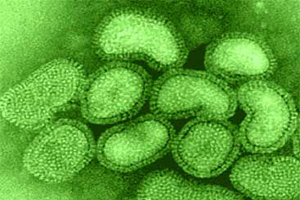IEC discusses animal influenza at OIE/FAO OFFLU meeting

Dr Vincent Guyonnet, Scientific Advisor at the International Egg Commission (IEC) has explained the latest discussions taking place around guidance on vaccines and vaccination against Highly Pathogenic Avian Influenza (HPAI).
In December 2013 the OIE/FAO network of expertise on Animal Influenza, known as OFFLU, met in Beijing, China. The IEC attended this technical meeting along with government representatives from Bangladesh, China, Egypt, Germany, India, Indonesia, Italy, Mexico, Nepal and Vietnam, and representatives from the International Federation for Animal Health (IFAH) and the World Health Organization (WHO).
The main aim of the meeting was to review the existing recommendations and to further build on them, using recent influenza experiences and the lessons learned. The culling of birds in endemic countries is not always an ideal solution, particularly in developing countries where poultry production is the livelihood of many smallholders. Participants from China, Egypt, Indonesia and Vietnam shared the knowledge and experience they have gained, since 2003, of vaccination programmes and influenza control measures.
Dr Guyonnet explained: “All participants at the OFFLU meeting agreed that vaccination is an excellent tool, along with biosecurity, surveillance, and other measures that can be used by countries where influenza is endemic.”
Dr Guyonnet went on to say: “Influenza vaccination programmes have improved tremendously over the past few years, although the frequent genetic mutation of the influenza virus requires regular monitoring of the field viruses to ensure the relevance of the viral strains present in vaccines. New research on AI-vector vaccines, effective vaccines for ducks and the possibility to administer vaccines at the hatchery are promising areas for the future.”
The true challenge for controlling influenza in endemic countries will continue to be finding ways to reduce and control the disease and influenza virus load in backyard and village flocks (so called sectors 3 and 4 in the FAO categorisation of poultry production) and in ducks, most often a silent carrier of the virus.









